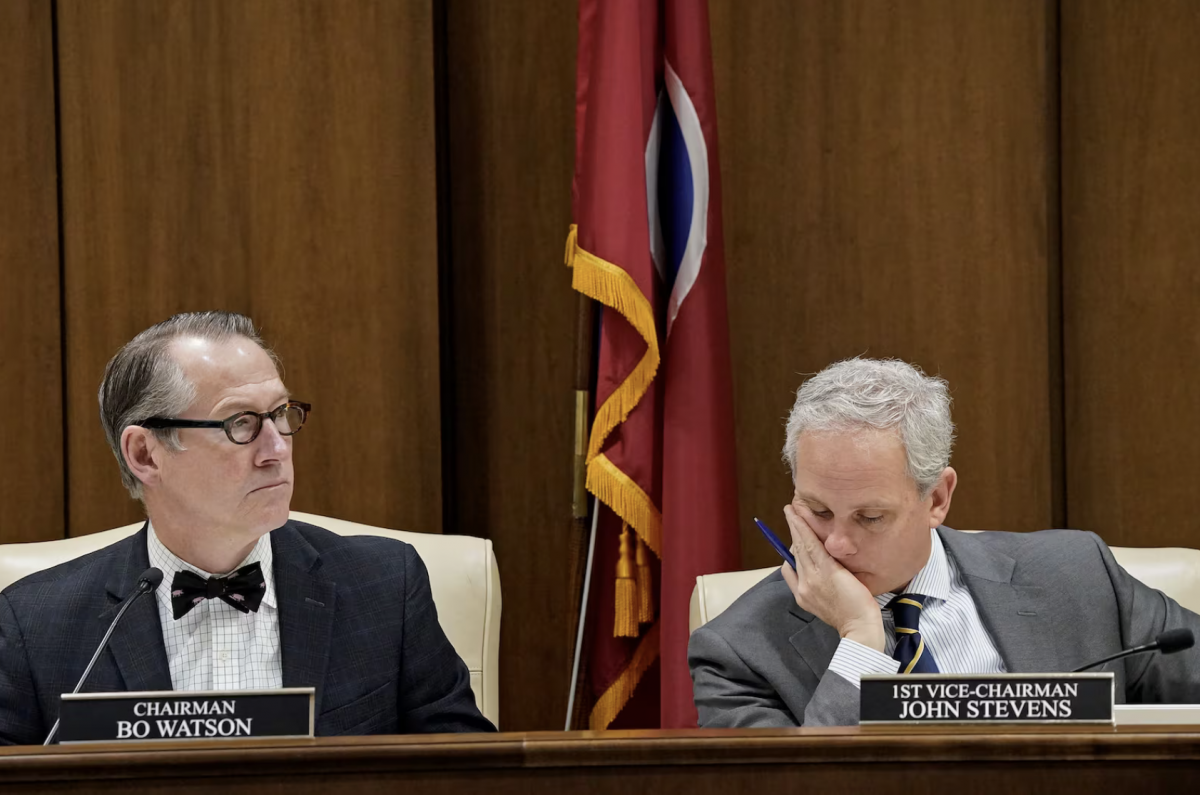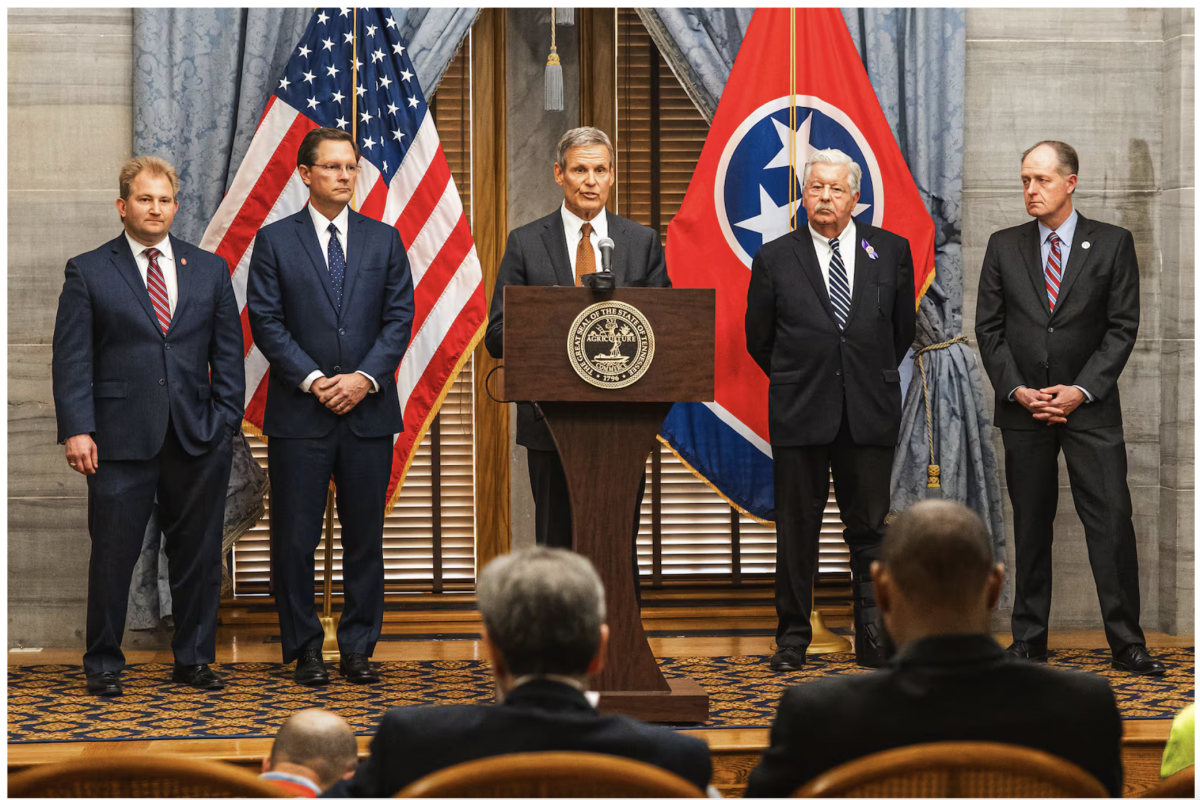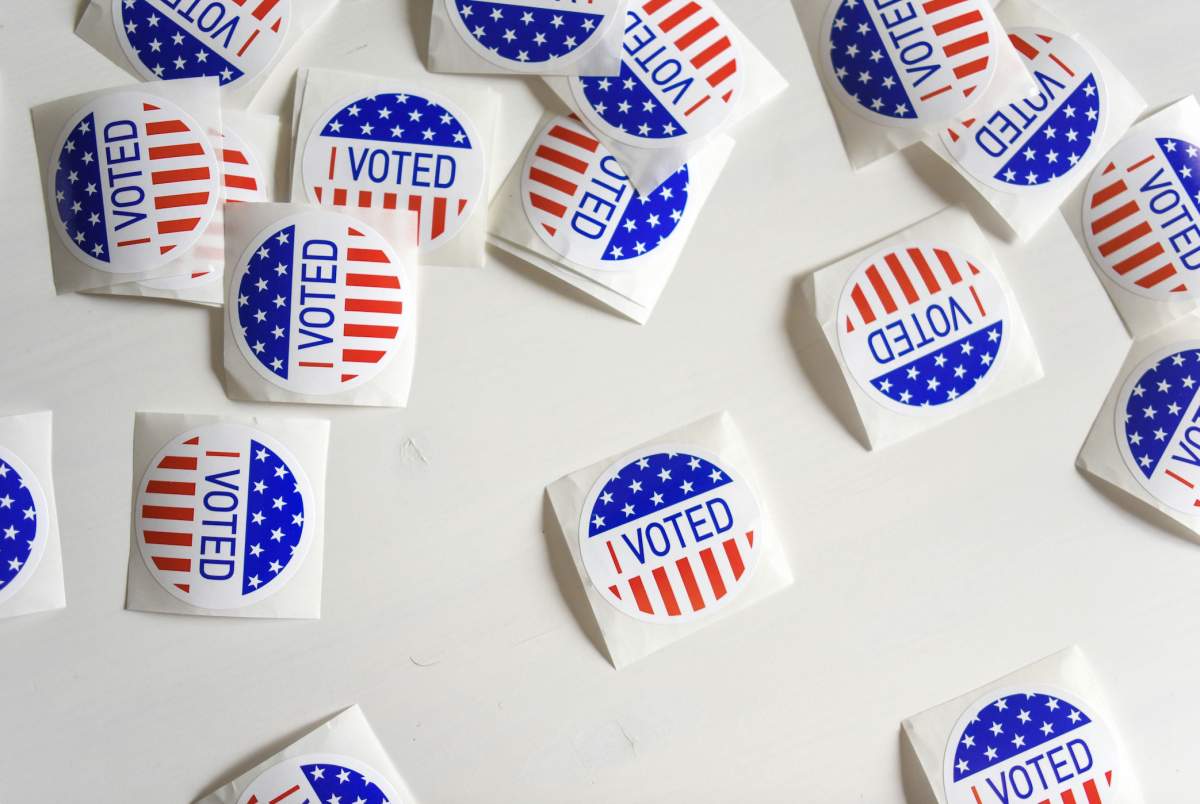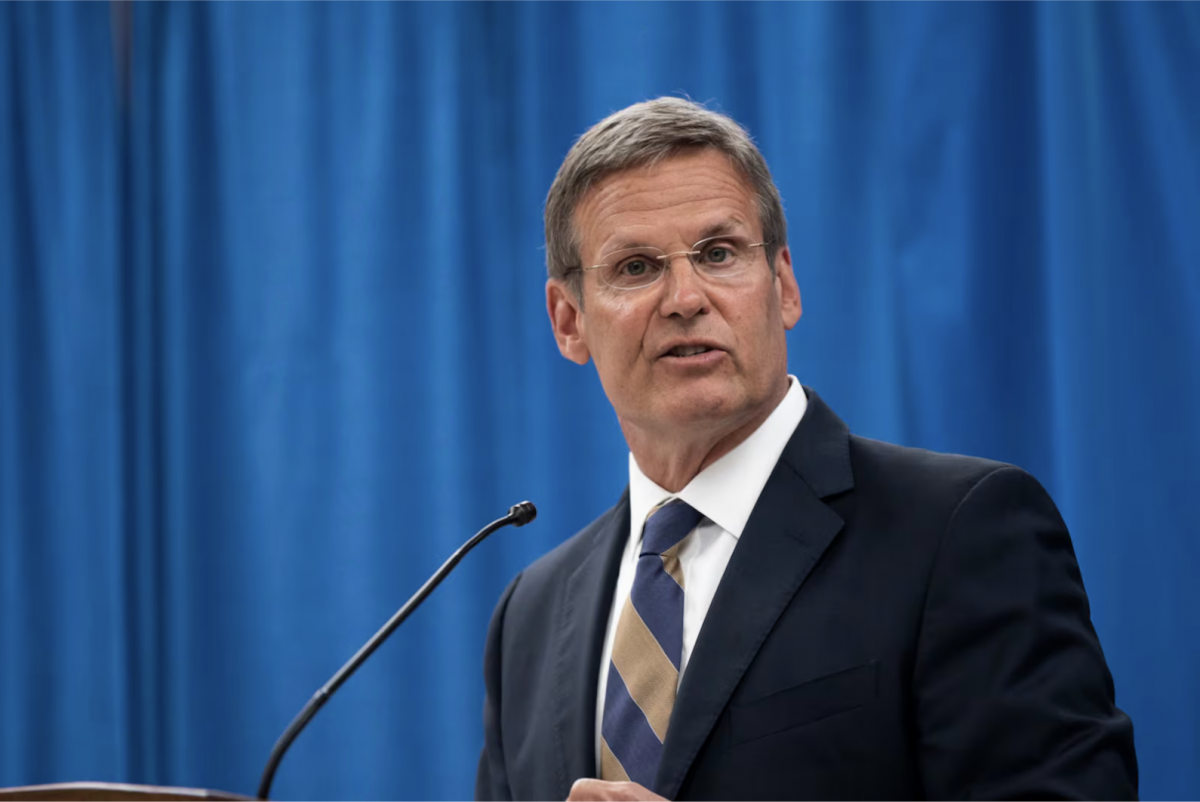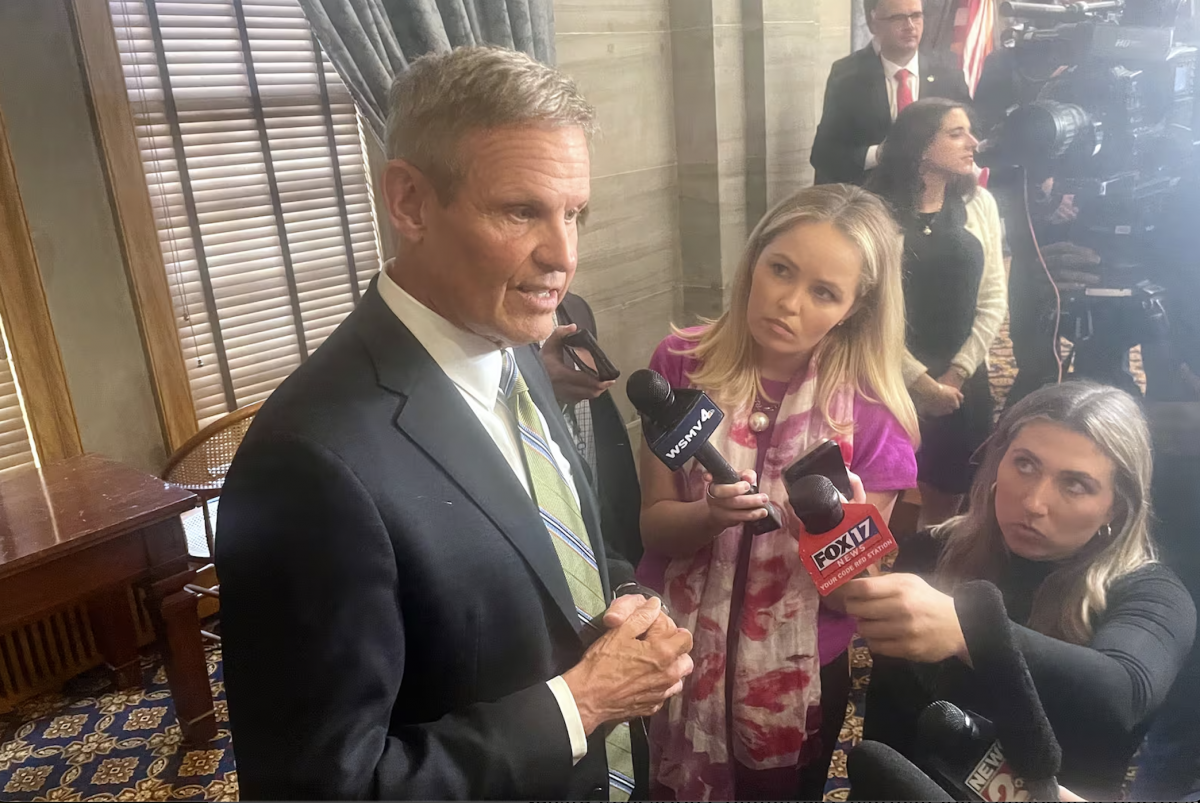Sign up for Chalkbeat Tennessee’s free newsletter to keep up with statewide education policy and Memphis-Shelby County Schools.
Gov. Bill Lee’s private school voucher bill on Wednesday cleared the committee level in a special legislative session, setting the stage for votes this week by the full House and Senate.
As expected, the bill sailed Tuesday through education panels stacked with lawmakers who support policies that provide taxpayer funding to families to pay toward private education services.
The bigger test came later in finance committees, where a similar voucher bill bogged down last spring over disagreements within the Republican supermajority. It passed easily there too, with only a few GOP members from rural areas in opposition.
Lee’s Education Freedom Act, his signature education proposal, is scheduled to be debated Thursday by both full chambers, where the votes are expected to be tighter.
If it passes, the initiative would mark a major change in K-12 education in Tennessee. It would create a new statewide schooling track, starting with 20,000 “scholarships” of $7,075 each.
To draw support from lawmakers worried about the impact to their public schools, the measure also would give one-time bonuses of $2,000 to the state’s public school teachers; establish a public school infrastructure fund using tax revenues from the sports betting industry that currently contribute to college scholarships; and reimburse public school systems for any state funding lost if a student dis-enrolls to accept the new voucher.
Only 15 of the state’s 144 districts are expected to receive such reimbursements, according to the legislature’s latest fiscal analysis of the bill.
An amendment added on Tuesday requires that, for public school teachers to receive the bonus, their school boards must adopt a resolution saying that they want to participate in the bonus plan. Sponsors said the change was intended to give local boards more autonomy over the funds.
The action on Lee’s proposal came as President Donald Trump signed an executive order Wednesday that frees up federal funding and prioritizes spending on school choice programs.
A day earlier, Trump applauded Tennessee’s Education Freedom Act.
“Congratulations to Tennessee Legislators who are working hard to pass School Choice this week, which I totally support,” the president said in his post.
A subsidy or a civil right: Senators debate the bill’s purpose
The governor, who has framed school choice as “the civil rights issue of our time,” called lawmakers into the special session to take up vouchers, disaster relief, and immigration.
Republican leaders who control the General Assembly have signaled that they intend to wrap up that business in one week and pass three different legislative packages, as well as about $1 billion to pay for them.
The statewide voucher bill is the session’s most contentious issue, prompting philosophical debates Wednesday among members of the Senate Finance Committee about whom the proposed program is intended to help.
According to the state’s own analysis, about 65 percent of the new voucher recipients are expected to be students who are already in private schools, with the rest coming from public schools.
That projection may be low. In Arkansas, which approved universal vouchers in 2023 under Gov. Sarah Huckabee Sanders, more than 80 percent of last year’s enrollees had not attended public schools the previous year.
Tennessee’s bill would remove any family income restrictions for eligibility in the program’s second year. For the upcoming 2025-26 academic year, half of the vouchers would be available to students whose family income is no more than three times the federal threshold for receiving a reduced-price lunch, or about $175,000 annually for a family of four.
“It’s essentially giving a scholarship to people who can already afford to go to private school anyway,” said Sen. London Lamar (D-Memphis).
By contrast, the state’s smaller existing school voucher program, approved by the legislature in 2019, restricts eligibility to public school students living in Memphis, Nashville, and Chattanooga, and whose families have significantly lower incomes.
Defending the governor’s universal voucher plan, Senate Majority Leader Jack Johnson (R-Franklin) challenged the suggestion that the measure amounts to a government-funded subsidy for affluent families.
“We’re not going to penalize people who’ve been successful,” said Johnson, the bill’s Senate sponsor. “We’re not going to penalize people who work hard and might do a little better than someone else. We want these to be universal, and that’s the ultimate goal.”
Johnson added that he “has a problem with deciding who’s rich and who’s not.” It depends, he said, on their family’s location and circumstances.
“This program is going to help families across Tennessee — 20,000 kids — get into a school that their parents think is a better option,” he said. “And it shouldn’t be based on income. It should be universal.”
Early research shows that small voucher programs limited to low-income students are more likely to have positive outcomes, while recent national studies indicate that vouchers have mostly negative or insignificant impacts on academic outcomes.
Long-term costs worry critics
Sen. Jeff Yarbro (D-Nashville) sought to pin down the proposed program’s cost as it grows, especially since the 74,000 students who attend private schools in Tennessee would be eligible to apply for a state-funded scholarship.
State analysts expect all 20,000 vouchers will be awarded in the first year, allowing the state to expand the program by 5,000 participants each year, potentially doubling the program’s size by the 2029-30 school year. In the first five years, the program could cost taxpayers at least $1.1 billion, the state’s analysts say.
“This is a long-term program, and we should think about the long-term costs,” Yarbro said.
He called out the explosive growth of Arizona’s voucher program, which became available to all students in 2022. The initiative has contributed to a $400 million shortfall in the state’s current budget.
Johnson said Yarbro’s concerns amounted to “scare tactics.”
Any growth in the program is “subject to appropriation” by the legislature, he said. “We’ll be back next year, and we’ll have a conversation about it.”
Marta Aldrich is a senior correspondent and covers the statehouse for Chalkbeat Tennessee. Contact her at maldrich@chalkbeat.org.
Chalkbeat is a nonprofit news site covering educational change in public schools.
